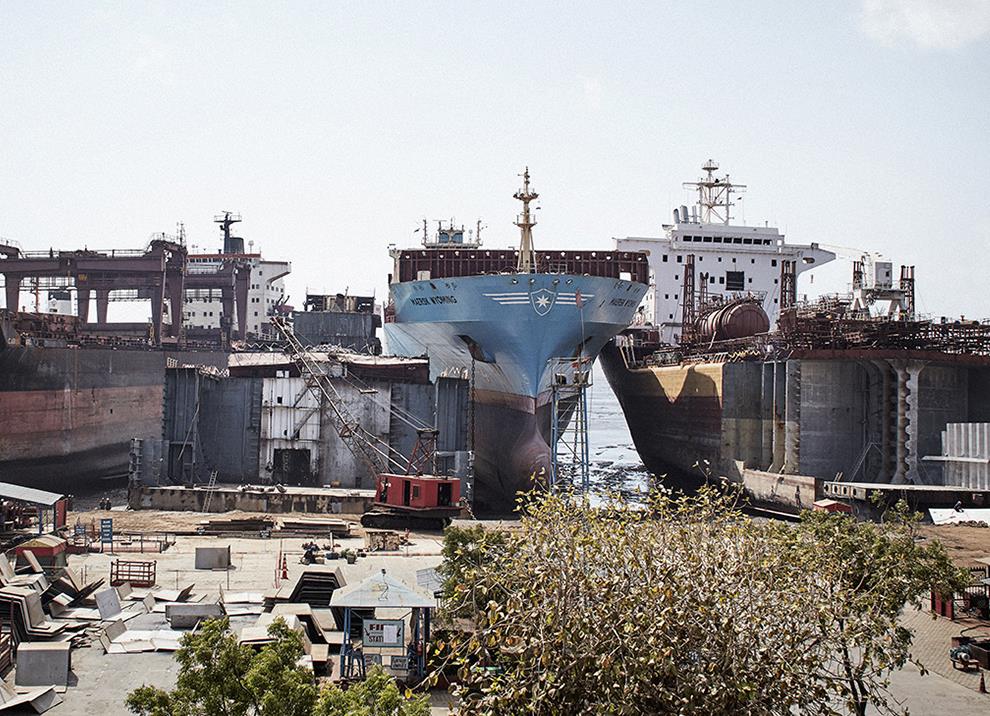Danish shipping giant Maersk Line has admitted that its own contracts from divestments “have not always guaranteed the intention” of the company’s recycling policy, according to Annette Stube, Head of Maersk Group Sustainability.

The company has thus tightened its procedures and contract requirements while also realizing that the solution “does not lie with clever contracts and that it may take a long time for a global agreement to become effective.”
Stube said that one option is to continuing to wait for global agreement while hundreds of vessels continue to be dismantled on the beaches of India, Bangladesh and Pakistan, or to act now and begin improving the conditions in yards.
“We have chosen to no longer stand passively on the other side of the gate of the ship yard but instead engage directly where the majority of ships are dismantled. This is why we have initiated a collaboration with shipyards in India,” Stube added.
She said that Maersk has requested a number of improvements to the yards which wish to cooperate with the company. Furthermore, Maersk said it would provide a financial incentive for yards in Alang, India to upgrade their work and environmental conditions.
“If the ship yards live up to our requirements we will send our vessels for dismantling at a competitive price. This way they can compete with neighbouring yards that do not live up to the Hong Kong Convention.”
In May 2016, Maersk Line sent its first two container vessels, the Maersk Wyoming and the Maersk Georgia, to India’s Shree Ram yard in Alang for recycling. The company was criticized for the move as NGO Shipbreaking Platform’s Executive Director Patrizia Heidegger said that “upgrading beaching yards in Alang is the wrong approach” to solving the issue of substandard shipbreaking activities.
The Danish shipping giant earlier announced its long-term commitment to create “more responsible” recycling options in Alang, India, as well as help the ship recycling yard to upgrade facilities and practices to comply with the company’s standards as the group eyes cost reductions for its ship recycling.
Source: http://worldmaritimenews.com


